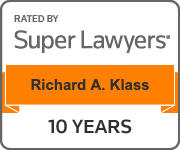In certain cases, the Referee in the foreclosure action conducted a sale of the subject real property generates surplus moneys after an auction sale, which are then deposited with the court. After filing of the Referee’s Oath and Report of Sale after foreclosure auction sale, a party can move for confirmation of the Report of Sale more than 3 months but not later than 4 months after the filing of the Report of Sale. RPAPL Section 1355. Further, upon confirmation of the Report of Sale, and on motion of any party prior to or within 3 months of confirmation of the Report and Sale claiming the surplus moneys which have arisen from the foreclosure auction sale, the Supreme Court shall determine the priorities in such surplus moneys and order distributions thereof. RPAPL Section 1361.
The Second Department has held that the failure to move to appoint a Referee in a Surplus Money Proceeding following foreclosure of a mortgage within the time prescribed by statute is a mere irregularity which, in the absence of prejudice of any substantial right of a party, may be disregarded. Associated Financial Services, Inc. v. Davis, 183 AD2d 686, 583 NYS2d 274 (2d Dept. 1992).
The potential issue of a defendant or claimant not having filed an Answer or Notice of Appearance in the foreclosure action is not relevant as to whether that party may pursue recovery of surplus moneys. It is well settled that a defendant who defaulted in answering the foreclosure action is not precluded from proving its lien in Surplus Money Proceeding. Riverhead Savings Bank v. Garone 183 AD2d 760, 583 NYS2d 483 (2d Dept. 1992), citing to The Dime Savings Bank of Brooklyn v. Pine Drive Associates, Inc., 28 Misc.2d 648, 212 NYS2d 111 (Sup. Ct., Nassau Co. 1961). Further, a second mortgagee/lienor, as a party named in the foreclosure action, is not required to file a Notice of Claim to Surplus Moneys in order to preserve its right to satisfaction of its lien from surplus proceeds of a foreclosure sale. Federal Home Loan Mortgage Corp. v. Grant, 224 AD2d 656, 639 NYS2d 72 (2d Dept. 1996) (“As a party to the foreclosure action, the respondent, secondary mortgagee Marine Midland Bank, was not required to file a notice of claim to the surplus moneys in order to preserve its right to the satisfaction of its lien from the surplus proceeds of the foreclosure sale.”).
Where, under a mortgage foreclosure sale, a surplus is realized, and the premises are at the time of such sale subject to a second mortgage, the respective rights of the parties will be determined as of the date of the foreclosure sale. Elsworth v. Woolsey, 19 AD 385, 46 NYS 486 (1st Dept. 1897), affirmed, 154 NY 748, 49 NE 1096 (1897). New York courts have held that those respective rights in the surplus moneys, as enunciated by Elsworth, transfer from the “res” of the action, to wit: the land, to the surplus moneys. In Roosevelt Savings Bank v. Goldberg, 118 Misc.2d 220, 459 NYS2d 988 (Sup. Ct., Nassau Co. 1983), the court held:
“Surplus money realized upon a foreclosure sale is not a general asset of the owner of the equity of redemption, but stands in the place of the land for all purposes of distribution among persons having vested interests or liens upon the land. Surplus money takes the place of the equity of redemption, and only one who had a vested estate or interest in the land sold under foreclosure which was cut off by the foreclosure sale, is entitled to share in the surplus money, with priority in each creditor determined by the filing date of his lien or judgment.”
by Richard A. Klass
———–
copyr. 2012 Richard A. Klass, Esq.
The firm’s website: www.CourtStreetLaw.com
Richard A. Klass, Esq., maintains a law firm engaged in civil litigation at 16 Court Street, 28th Floor, Brooklyn Heights, New York.
He may be reached at (718) COURT-ST or e-ml to RichKlass@courtstreetlaw.com with any questions.
Prior results do not guarantee a similar outcome.
R. A. Klass Your Court Street Lawyer
Next post Previous post


